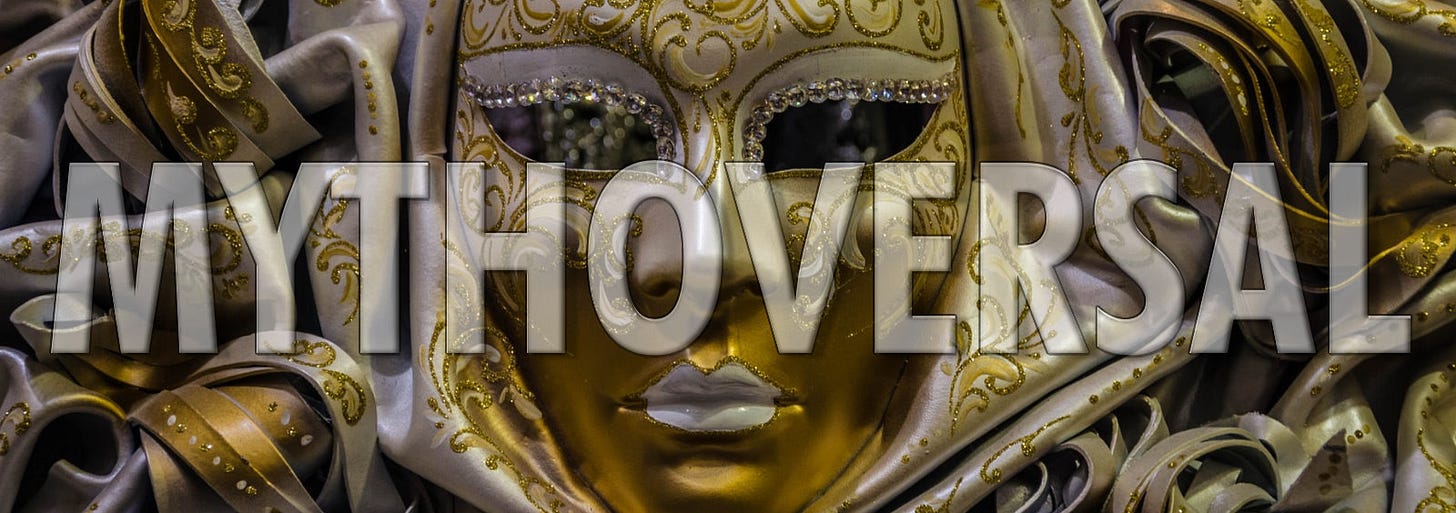Trojan War Wednesday: Sentient Magic, Part 1
Should Greek Mythology be shelved as fantasy, paranormal, or historical?
Where We Are
This is the first in a series of newsletter posts looking at the Greek mythology as a magic system. These deities, once an integral part of ancient art, philosophy, and religious practice, weren’t originally created to be literary tropes. But over thousands of years of storytelling tradition, they’ve acquired a standardized role in fantasy worldbuilding and story structure.
This week’s essay introduces the concept of using gods as a magic system, which requires a step back to consider the conventions of genre.
Mythology and Genre
In order to send a book out into the world, authors or their publishers need to specify the genre, niche, or pigeonhole that the book falls into. The genre clues readers into what they’re getting. There are broad categories like fiction and non-fiction, contemporary and historical, speculative, mystery, and romance, on down to very narrow and specific subgenres like LitRPG, which only includes stories that take place inside video game worlds.
So where does retold mythology fall within this taxonomy?
When reset in the modern day, myths may become urban fantasy. Reset in the future, they’re fodder for sci-fi. Played with a twist, they can be folded in with retold fairytales. With a focus on relationships and mythological monsters, they’re paranormal romance. Margaret Atwood’s Penelopiad has been shelved with feminist literature. Frank Miller’s 300 is action-adventure or historical fiction. The story of Oedipus Rex could be considered a murder mystery. Even the LitRPG genre I mentioned before can accommodate stories set in mythology-themed video games.
As a result, modern mythology is scattered all over the shelves.
Mythology as Fantasy
Lately, I’ve been leaning toward thinking of my stories as Bronze Age historical fantasy with a magic system made of gods. It’s just like any other works in the fantasy genre except that the magic system is sentient, and made up of interlocking parts with clashing personalities beyond human control.
Brandon Sanderson, one of my favorite fantasy authors, has famously theorized about the use of magic in fiction. Sanderson distinguishes between hard magic systems and soft magic systems, with most applications of fictional magic falling somewhere in between. On the harder side of the spectrum, magic has strict rules that can’t be broken. On the softer side, anything goes and new rules seem to be created on the fly.
In Greek mythology, the rules of magic are defined by the personalities of the gods. The more strictly delineated the gods are, and the less likely the gods are to deviate from their standard behaviors, the harder the magic system becomes.
The body of Greek mythology as a whole is a fairly soft magic system. The gods are fickle, unpredictable, inconsistent over multiple works, and are often constrained by the Fates. In such a system, one god or another can show up at any time to resolve any conflict, becoming a literal deus ex machina. For example, Athena showing up at the end of Homer’s Odyssey to end the cycle of vendetta between Odysseus and the families of all the people he killed.
The challenge within a specific work of mythic fantasy is to harden the magic system by providing more specific motivations and realms for each god, and better defining the extent to which the gods are willing or able to intervene in mortal affairs. In Homer’s Iliad, Zeus doesn’t just refrain from saving the life of Sarpedon. He defines a rule for all of the other gods to follow regarding the deaths of their own favored mortals.
Having gods with predictable personalities and set rules will make their intervention seem more natural to the story, reducing the problem of deus ex machina.
In the next newsletter, we’ll consider how mythic gods work with Sanderson’s rules of magic.
What do you think about the interaction of mythology with genre? Let me know in the comments, and thanks for reading.
—Greg R. Fishbone, Mythoversal Author-in-Residence
Nine years into the siege of Troy, the greatest Achaean warrior, Achilles, is sidelined by rage and resentment following a conflict with his commander, Agamemnon. This short but intense phase of warfare leads to devastating losses on both sides, conflict among the gods, and great tragedy on a human level.
Rage! is a disruptive retelling of Homer’s Iliad, restoring diversity, inclusion, and equity to a three-thousand-year-old tradition.
This week’s Rage centers Hera, Queen of the Gods. We're still retelling the Iliad, but making a necessary side-trip into a lost or otherwise untold story that Homer references in which the Greek gods visit Ethiopia. Also, advancing the theme of this week’s essay, this story explains a bit how the gods work as a magic system.
Through retold myths, informational articles, and educational resources, Mythoversal seeks to foster a deeper understanding of traditional cultures, their impact on each other, and on the modern world.
Our entry point into the Mythoverse is the land of Mythoversal Hellas, where we disrupt and deconstruct Greek, Hellenic, Roman, and Byzantine sources to create a mythic environment that's inclusive, inviting, relevant, and welcoming. The result is both a setting and a lens for modern readers.
The Mythoversal Newsletter brings author commentary, mythological movie reviews, and occasional essays to your inbox. If a friend forwarded this issue to you, consider subscribing for yourself to be sure you don't miss any future content.







